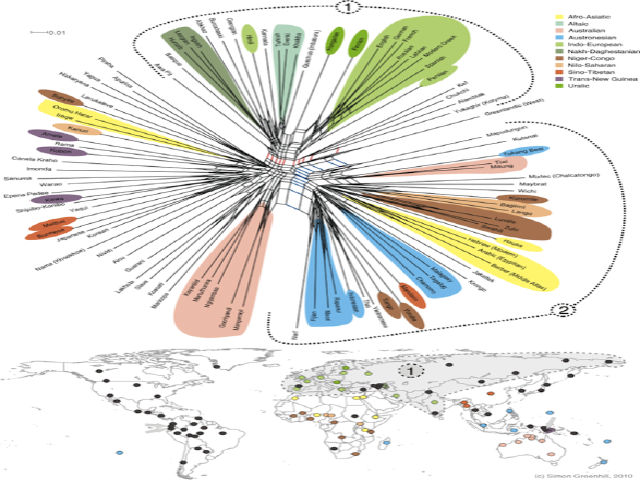The shape and tempo of language evolution

Authors:
Citation:
Details:
Published: 4 April, 2010.
Download:
Abstract:
There are approximately 7000 languages spoken in the world today. This diversity reflects the legacy of thousands of years of cultural evolution. How far back we can trace this history depends largely on the rate at which the different components of language evolve. Rates of lexical evolution are widely thought to impose an upper limit of 6-10 thousand years on reliably identifying language relationships. In contrast, it has been argued that certain structural elements of language are much more stable. Just as biologists use highly conserved genes to uncover the deepest branches in the tree of life, highly stable linguistic features hold the promise of identifying deep relationships between the world’s languages. Here we present the first global network of languages based on this typological information. We evaluate the relative evolutionary rates of both typological and lexical features in the Austronesian and Indo-European language families. The first indications are that typological features evolve at similar rates to basic vocabulary but their evolution is substantially less treelike. Our results suggest that, whilst rates of vocabulary change are correlated between the two language families, the rates of evolution of typological features and structural sub-types show no consistent relationship across families.